College of Human Sciences
African leadership from an indigenous perspective
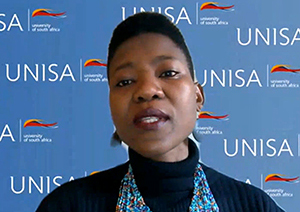
Prof Puleng Segalo
On 1 June 2022, the Chief Albert Luthuli Research Chair, Prof Puleng Segalo, presented a webinar entitled African Leadership from an indigenous perspective. In its fourth event in 2022, Segalo indicated that she aims to keep alive the memory of the great Chief Albert Luthuli, the ideals and passions that were close to his heart. The event's keynote speaker was the critically acclaimed author, healer and activist, Mmatshilo Motsei.
The colonial eye
Motsei kicked off the webinar by breaking protocol when she praised herself through her clan names and the history of where her name comes from – an African tradition of introducing oneself.
The introduction to her talk was for attendees to understand that from an African perspective, we are all leaders. She remarked: "We are initiated in institutions that sharpen the colonial eye in us and kill the indigenous eye. We are the most important members of the ceremony." She gave examples of African ceremonies, where Africans beat drums, chant, sing and clap. In contrast, some silently observe, while feeling and absorbing the energy that comes from the circle.
"We, as a collective are leading, and each have a leadership role. You cannot lead if you talk more than you listen. The problem with modern leadership is that our leaders speak more than they listen; it is important to listen with your ears, heart, skin and breath," she asserted.
Unpacking African leadership
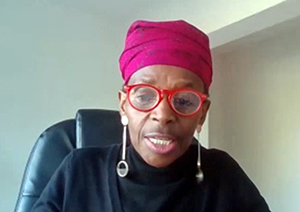
Mmatshilo Motsei
Motsei indicated that when people hear the word "leadership", they immediately think of political leadership. She explained: "When people say that there is no leadership in the country, they mean there is no leadership within the political space."
Motsei conducted a brief exercise asking attendees to think of someone that they regard as a leader and has influenced them as respective followers. She critically asked: "Who has influenced you as a follower, whose name is not mentioned or quoted in generals, speeches, or books? Write that person’s name down, and in one sentence, write why that person is your leader, focusing on how they lead and positively influence you."
The point of the exercise was to prove that everyone and anyone is a leader, and that people lead in unique ways. "That is the secret of African leadership; everyone is groomed for leadership, whether it is through the right to name the newly born, or to lead the young ones. Whether you are educated or not, leadership is honouring the gift that you have inside," she affirmed.
In closing, Motsei explained her four pillars of leadership as learning how to serve, having respect, learning consensus and having love. "We are all leaders."
* By IHlubi Veli Mabona, Marketing Assistant, College of Human Sciences
Publish date: 2022-06-06 00:00:00.0


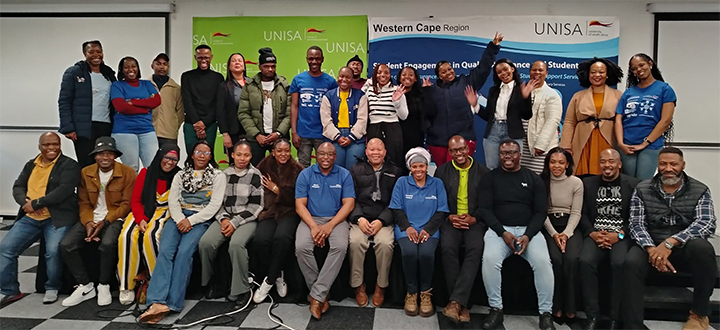 CAS students take centre stage in shaping academic quality and support
CAS students take centre stage in shaping academic quality and support
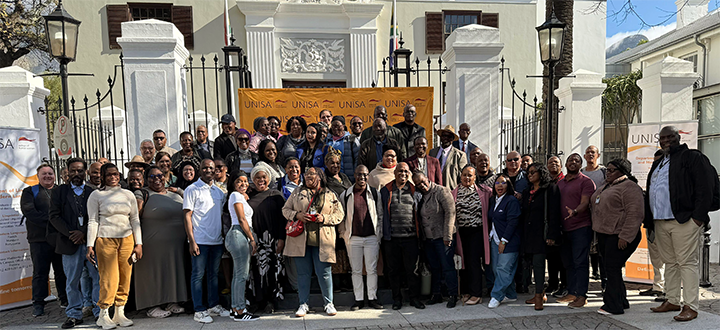 Unisa engaged scholarship project heads to parliament
Unisa engaged scholarship project heads to parliament
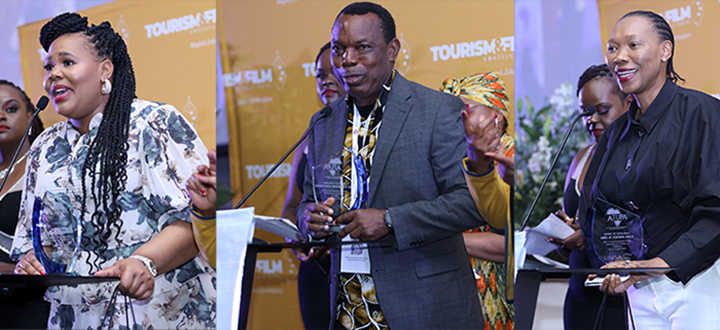 Unisa and ATUPA recognise researchers for ingenuity and innovation
Unisa and ATUPA recognise researchers for ingenuity and innovation
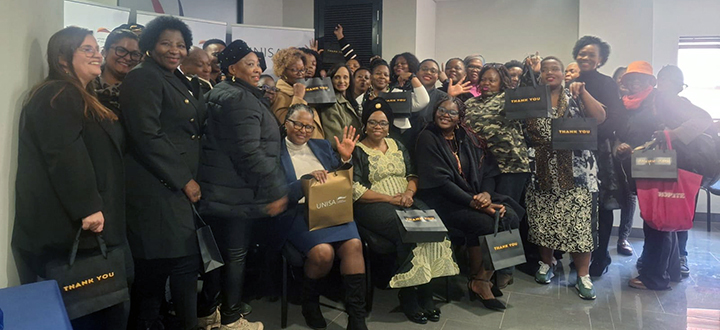 Recognising the unceasing resilience of women
Recognising the unceasing resilience of women
 Unisa and SHECASA promote institutional health and safety
Unisa and SHECASA promote institutional health and safety